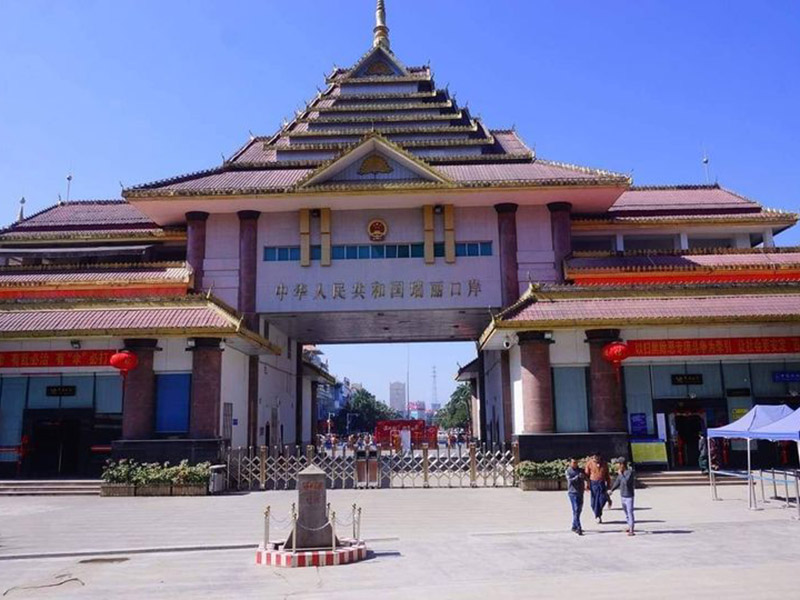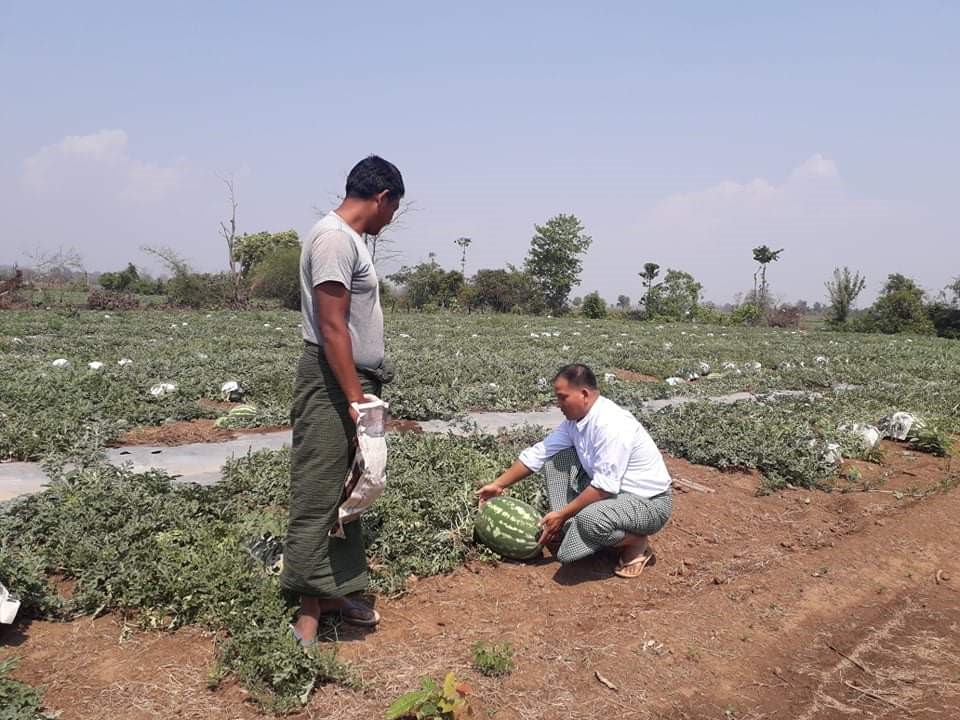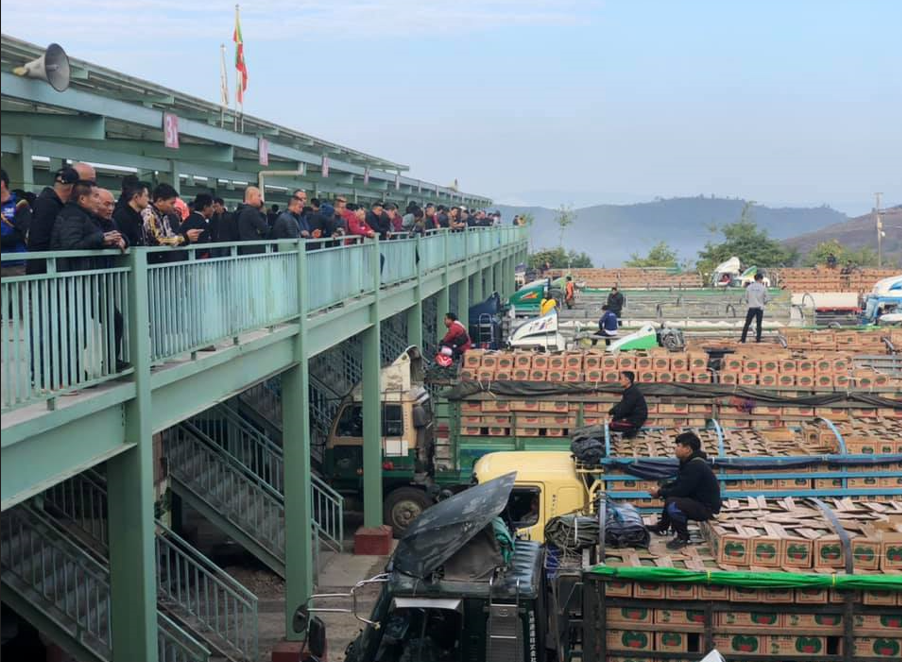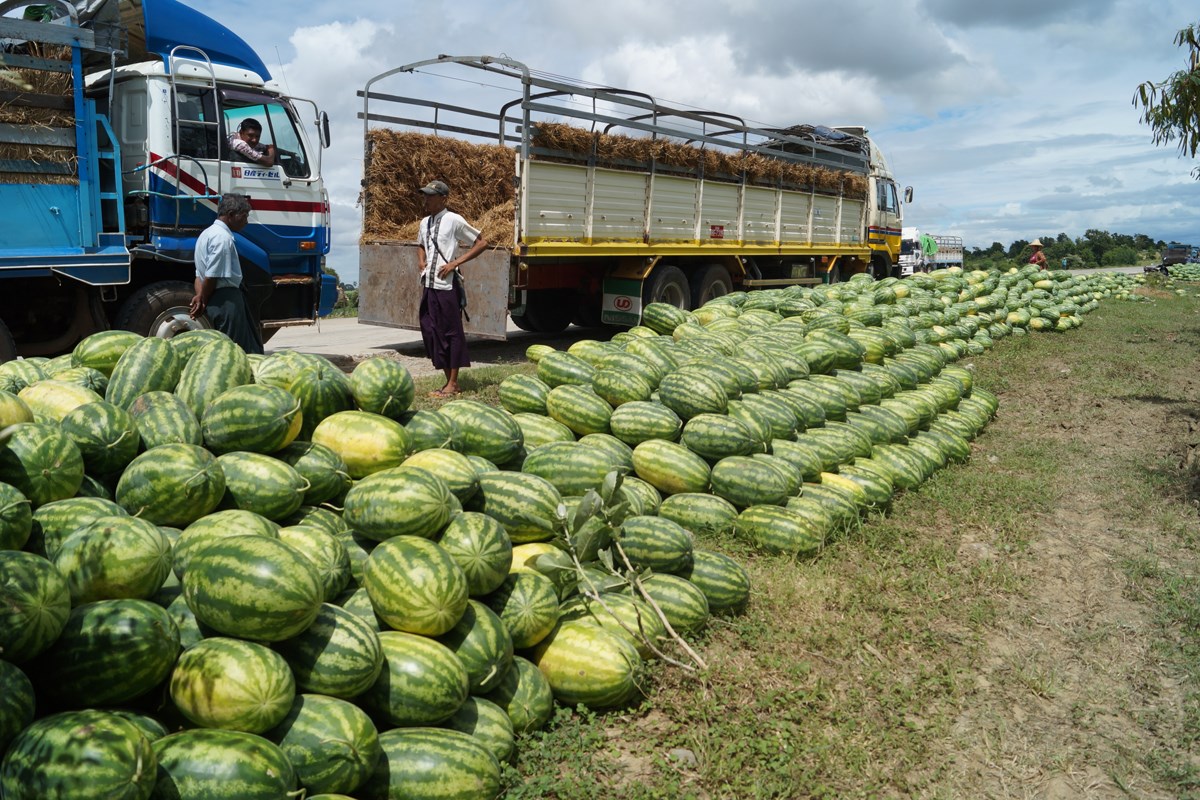CNI News
3 Nov 2022
As the lockdown has been imposed in Ruili and Wanding, Chinese merchant are not able to import monsoon watermelons from Myanmar and the fruit export market has collapsed in Myanmar, according to the fruit commodity exchange in Muse.
The export market for monsoon watermelons has collapsed in Myanmar due to lockdowns in China, Owner U Sai Khin Maung of Khwarnyo Fruit Warehouse told the CNI.
He told the CNI, “It is difficult to predict the situation. If the lockdown is imposed for a long time, Chinese merchants will not be able to come to us and the border trade market will collapse. Only after the lockdown has been lifted, will we be able to trade as usual. The Chinese government is imposing lockdowns repeatedly. So, we will have to rely on the local market.”
Watermelon farmers also said that they have to sell their fruits to local markets like Thiri Mingalar Market and Danyingone Market.

A China-Myanmar border trade gate.
Merchants can get as much as Yuan 60,000 or MMK 18 million for a truckload of watermelons (17 tons) to export watermelons to China, they get only MMK 3 million for a truckload in the local market.
Watermelon farmers are suffering losses, Ko Thitsar, a watermelon farmer from Sagaing Region, told the CNI.
He said, “If we sell watermelons to China, we get two to three Yuan per kilo. If our fruits meet the quality standards set by Chinses authorities, we get high prices. In the domestic market, we have to sell in terms of quantity whether it is small or big. When we sold a truckload of watermelons, we got Yuan 60,000 (MMK 18 million). In the domestic market, we get only MMK 3 to 3.5 million for a truckload of watermelons. We had to invest MMK 4.5 million but we got only MMK 3.5 million for our fruits. So, we are suffering losses.”

A watermelon plantation.
At present, only one or two truckloads of watermelons could be exported to China and merchants were struggling to cover the transportation charges, according to merchants.
Watermelon exporters suffer losses every year depending on the policies of Chinese authorities.
To solve such issues, Myanmar merchants and farmers want to export watermelons to China under the G-to-G agreements.

Watermelon truck heading to China.
The total acreage of watermelons in Myanmar dropped this year due to higher costs of inputs and instabilities in some regions.
As the export market of the fruit has collapsed, farmers will further decrease the acreage of watermelons to one-third of the previous year in the upcoming season, according to farmers.
While total acreage has dropped, the yield has fallen by 60 percent, according to them.




